- Home
- Brandon Sanderson
Words of Radiance Page 6
Words of Radiance Read online
Page 6
“I want to look at what we’ve got,” Kaladin said, leading them away from the barrack. It would house fifty men along with a half-dozen sergeants. More barracks flanked it on either side. Kaladin had been given an entire block of them—twenty buildings—to house his new battalion of former bridgemen.
Twenty buildings. That Dalinar should so easily be able to find a block of twenty buildings for the bridgemen bespoke a terrible truth—the cost of Sadeas’s betrayal. Thousands of men dead. Indeed, female scribes worked near some of the barracks, supervising parshmen who carried out heaps of clothing and other personal effects. The possessions of the deceased.
Not a few of those scribes looked on with red eyes and frazzled composures. Sadeas had just created thousands of new widows in Dalinar’s camp, and likely as many orphans. If Kaladin had needed another reason to hate that man, he found it here, manifest in the suffering of those whose husbands had trusted him on the battlefield.
In Kaladin’s eyes, there was no sin greater than the betrayal of one’s allies in battle. Except, perhaps, for the betrayal of one’s own men—of murdering them after they risked their lives to protect you. Kaladin felt an immediate flare of anger at thoughts of Amaram and what he’d done. His slave brand seemed to burn again on his forehead.
Amaram and Sadeas. Two men in Kaladin’s life who would, at some point, need to pay for the things they’d done. Preferably, that payment would come with severe interest.
Kaladin continued to walk with Teft, Moash, and Skar. These barracks, which were slowly being emptied of personal effects, were also crowded with bridgemen. They looked much like the men of Bridge Four—same vests and knee-trousers. And yet, in some other ways, they couldn’t have looked less like the men of Bridge Four. Shaggy-haired with beards that hadn’t been trimmed in months, they bore hollow eyes that didn’t seem to blink often enough. Slumped backs. Expressionless faces.
Each man among them seemed to sit alone, even when surrounded by his fellows.
“I remember that feeling,” Skar said softly. The short, wiry man had sharp features and silvering hair at the temples, despite being in his early thirties. “I don’t want to, but I do.”
“We’re supposed to turn those into an army?” Moash asked.
“Kaladin did it to Bridge Four, didn’t he?” Teft asked, wagging a finger at Moash. “He’ll do it again.”
“Transforming a few dozen men is different from doing the same for hundreds,” Moash said, kicking aside a fallen branch from the highstorm. Tall and solid, Moash had a scar on his chin but no slave brand on his forehead. He walked straight-backed with his chin up. Save for those dark brown eyes of his, he could have passed for an officer.
Kaladin led the three past barrack after barrack, doing a quick count. Nearly a thousand men, and though he’d told them yesterday that they were now free—and could return to their old lives if they wished—few seemed to want to do anything but sit. Though there had originally been forty bridge crews, many had been slaughtered during the latest assault and others had already been short-manned.
“We’ll combine them into twenty crews,” Kaladin said, “of about fifty each.” Above, Syl fluttered down as a ribbon of light and zipped around him. The men gave no sign of seeing her; she would be invisible to them. “We can’t teach each of these thousand personally, not at first. We’ll want to train the more eager ones among them, then send them back to lead and train their own teams.”
“I suppose,” Teft said, scratching his chin. The oldest of the bridgemen, he was one of the few who retained a beard. Most of the others had shaved theirs off as a mark of pride, something to separate the men of Bridge Four from common slaves. Teft kept his neat for the same reason. It was light brown where it hadn’t gone grey, and he wore it short and square, almost like an ardent’s.
Moash grimaced, looking at the bridgemen. “You assume some of them will be ‘more eager,’ Kaladin. They all look the same level of despondent to me.”
“Some will still have fight in them,” Kaladin said, continuing on back toward Bridge Four. “The ones who joined us at the fire last night, for a start. Teft, I’ll need you to choose others. Organize and combine crews, then pick forty men—two from each team—to be trained first. You’ll be in command of that training. Those forty will be the seed we use to help the rest.”
“I suppose I can do that.”
“Good. I’ll give you a few men to help.”
“A few?” Teft asked. “I could use more than a few. . . .”
“You’ll have to make do with a few,” Kaladin said, stopping on the path and turning westward, toward the king’s complex beyond the camp wall. It rose on a hillside overlooking the rest of the warcamps. “Most of us are going to be needed to keep Dalinar Kholin alive.”
Moash and the others stopped beside him. Kaladin squinted at the palace. It certainly didn’t look grand enough to house a king—out here, everything was just stone and more stone.
“You are willing to trust Dalinar?” Moash asked.
“He gave up his Shardblade for us,” Kaladin said.
“He owed it to us,” Skar said with a grunt. “We saved his storming life.”
“It could have just been posturing,” Moash said, folding his arms. “Political games, him and Sadeas trying to manipulate each other.”
Syl alighted on Kaladin’s shoulder, taking the form of a young woman with a flowing, filmy dress, all blue-white. She held her hands clasped together as she looked up at the king’s complex, where Dalinar Kholin had gone to plan.
He’d told Kaladin that he was going to do something that would anger a lot of people. I’m going to take away their games. . . .
“We need to keep that man alive,” Kaladin said, looking back to the others. “I don’t know if I trust him, but he’s the only person on these Plains who has shown even a hint of compassion for bridgemen. If he dies, do you want to guess how long it will take his successor to sell us back to Sadeas?”
Skar snorted in derision. “I’d like to see them try with a Knight Radiant at our head.”
“I’m not a Radiant.”
“Fine, whatever,” Skar said. “Whatever you are, it will be tough for them to take us from you.”
“You think I can fight them all, Skar?” Kaladin said, meeting the older man’s eyes. “Dozens of Shardbearers? Tens of thousands of troops? You think one man could do that?”
“Not one man,” Skar said, stubborn. “You.”
“I’m not a god, Skar,” Kaladin said. “I can’t hold back the weight of ten armies.” He turned to the other two. “We decided to stay here on the Shattered Plains. Why?”
“What good would it do to run?” Teft asked, shrugging. “Even as free men, we’d just end up conscripted into one army or another out there in the hills. Either that, or we’d end up starving.”
Moash nodded. “This is as good a place as any, so long as we’re free.”
“Dalinar Kholin is our best hope for a real life,” Kaladin said. “Bodyguards, not conscripted labor. Free men, despite the brands on our foreheads. Nobody else will give us that. If we want freedom, we need to keep Dalinar Kholin alive.”
“And the Assassin in White?” Skar asked softly.
They’d heard of what the man was doing around the world, slaughtering kings and highprinces in all nations. The news was the buzz of the warcamps, ever since reports had started trickling in through spanreed. The emperor of Azir, dead. Jah Keved in turmoil. A half-dozen other nations left without a ruler.
“He already killed our king,” Kaladin said. “Old Gavilar was the assassin’s first murder. We’ll just have to hope he’s done here. Either way, we protect Dalinar. At all costs.”
They nodded one by one, though those nods were grudging. He didn’t blame them. Trusting lighteyes hadn’t gotten them far—even Moash, who had once spoken well of Dalinar, now seemed to have lost his fondness for the man. Or any lighteyes.
In truth, Kaladin was a little surprised at himself and t
he trust he felt. But, storm it, Syl liked Dalinar. That carried weight.
“We’re weak right now,” Kaladin said, lowering his voice. “But if we play along with this for a time, protecting Kholin, we’ll be paid handsomely. I’ll be able to train you—really train you—as soldiers and officers. Beyond that, we’ll be able to teach these others.
“We could never make it on our own out there as two dozen former bridgemen. But what if we were instead a highly skilled mercenary force of a thousand soldiers, equipped with the finest gear in the warcamps? If worst comes to worst, and we have to abandon the camps, I’d like to do so as a cohesive unit, hardened and impossible to ignore. Give me a year with this thousand, and I can have it done.”
“Now that plan I like,” Moash said. “Do I get to learn to use a sword?”
“We’re still darkeyes, Moash.”
“Not you,” Skar said from his other side. “I saw your eyes during the—”
“Stop!” Kaladin said. He took a deep breath. “Just stop. No more talk of that.”
Skar fell silent.
“I am going to name you officers,” Kaladin said to them. “You three, along with Sigzil and Rock. You’ll be lieutenants.”
“Darkeyed lieutenants?” Skar said. The rank was commonly used for the equivalent of sergeants in companies made up only of lighteyes.
“Dalinar made me a captain,” Kaladin said. “The highest rank he said he dared commission a darkeyes. Well, I need to come up with a full command structure for a thousand men, and we’re going to need something between sergeant and captain. That means appointing you five as lieutenants. I think Dalinar will let me get away with it. We’ll make master sergeants if we need another rank.
“Rock is going to be quartermaster and in charge of food for the thousand. I’ll appoint Lopen his second. Teft, you’ll be in charge of training. Sigzil will be our clerk. He’s the only one who can read glyphs. Moash and Skar . . .”
He glanced toward the two men. One short, the other tall, they walked the same way, with a smooth gait, dangerous, spears always on their shoulders. They were never without. Of all the men he’d trained in Bridge Four, only these two had instinctively understood. They were killers.
Like Kaladin himself.
“We three,” Kaladin told them, “are each going to focus on watching Dalinar Kholin. Whenever possible, I want one of us three personally guarding him. Often one of the other two will watch his sons, but make no mistake, the Blackthorn is the man we’re going to keep alive. At all costs. He is our only guarantee of freedom for Bridge Four.”
The others nodded.
“Good,” Kaladin said. “Let’s go get the rest of the men. It’s time for the world to see you as I do.”
* * *
By common agreement, Hobber sat down to get his tattoo first. The gap-toothed man was one of the very first who had believed in Kaladin. Kaladin remembered that day; exhausted after a bridge run, wanting to simply lie down and stare. Instead, he’d chosen to save Hobber rather than letting him die. Kaladin had saved himself that day too.
The rest of Bridge Four stood around Hobber in the tent, watching in silence as the tattooist worked carefully on his forehead, covering up the scar of his slave’s brand with the glyphs Kaladin had provided. Hobber winced now and then at the pain of the tattoo, but he kept a grin on his face.
Kaladin had heard that you could cover a scar with a tattoo, and it ended up working quite well. Once the tattoo ink was injected, the glyphs drew the eye, and you could barely tell that the skin beneath was scarred.
Once the process was finished, the tattooist provided a mirror for Hobber to look into. The bridgeman touched his forehead hesitantly. The skin was red from the needles, but the dark tattoo perfectly covered the slave brand.
“What does it say?” Hobber asked softly, tears in his eyes.
“Freedom,” Sigzil said before Kaladin could reply. “The glyph means freedom.”
“The smaller ones above,” Kaladin said, “say the date you were freed and the one who freed you. Even if you lose your writ of freedom, anyone who tries to imprison you for being a runaway can easily find proof that you are not. They can go to Dalinar Kholin’s scribes, who keep a copy of your writ.”
Hobber nodded. “That’s good, but it’s not enough. Add ‘Bridge Four’ to it. Freedom, Bridge Four.”
“To imply you were freed from Bridge Four?”
“No, sir. I wasn’t freed from Bridge Four. I was freed by it. I wouldn’t trade my time there for anything.”
It was crazy talk. Bridge Four had been death—scores of men had been slaughtered running that cursed bridge. Even after Kaladin had determined to save the men, he’d lost far too many. Hobber would have been a fool not to take any opportunity to escape.
And yet, he sat stubbornly until Kaladin drew out the proper glyphs for the tattooist—a calm, sturdy darkeyed woman who looked like she could have lifted a bridge all on her own. She settled down on her stool and began adding the two glyphs to Hobber’s forehead, tucked right below the freedom glyph. She spent the process explaining—again—how the tattoo would be sore for days and how Hobber would need to care for it.
He accepted the new tattoos with a grin on his face. Pure foolishness, but the others nodded in agreement, clasping Hobber on the arm. Once Hobber was done, Skar sat quickly, eager, demanding the same full set of tattoos.
Kaladin stepped back, folding his arms and shaking his head. Outside the tent, a bustling marketplace sold and bought. The “warcamp” was really a city, built up inside the craterlike rim of some enormous rock formation. The prolonged war on the Shattered Plains had attracted merchants of all varieties, along with tradesmen, artists, and even families with children.
Moash stood nearby, face troubled, watching the tattooist. He wasn’t the only one in the bridge crew who didn’t have a slave brand. Teft didn’t either. They had been made bridgemen without technically being made slaves first. It happened frequently in Sadeas’s camp, where running bridges was a punishment that one could earn for all manner of infractions.
“If you don’t have a slave’s brand,” Kaladin said loudly to the men, “you don’t need to get the tattoo. You’re still one of us.”
“No,” Rock said. “I will get this thing.” He insisted on sitting down after Skar and getting the tattoo right on his forehead, though he had no slave brand. Indeed, every one of the men without a slave brand—Beld and Teft included—sat down and got the tattoo on their foreheads.
Only Moash abstained, and had the tattoo placed on his upper arm. Good. Unlike most of them, he wouldn’t have to go about with a proclamation of former slavery in plain view.
Moash stood up from the seat, and another took his place. A man with red and black skin in a marbled pattern, like stone. Bridge Four had a lot of variety, but Shen was in a class all his own. A parshman.
“I can’t tattoo him,” the artist said. “He’s property.”
Kaladin opened his mouth to object, but the other bridgemen jumped in first.
“He’s been freed, like us,” Teft said.
“One of the team,” Hobber said. “Give him the tattoo, or you won’t see a sphere from any of us.” He blushed after he said it, glancing at Kaladin—who would be paying for all this, using spheres granted by Dalinar Kholin.
Other bridgemen spoke out, and the tattoo artist finally sighed and gave in. She pulled over her stool and began working on Shen’s forehead.
“You won’t even be able to see it,” she grumbled, though Sigzil’s skin was nearly as dark as Shen’s, and the tattoo showed up fine on him.
Eventually, Shen looked in the mirror, then stood up. He glanced at Kaladin, and nodded. Shen didn’t say much, and Kaladin didn’t know what to make of the man. It was actually easy to forget about him, usually trailing along silently at the back of the group of bridgemen. Invisible. Parshmen were often that way.
Shen finished, only Kaladin himself remained. He sat down next and closed his eyes. Th
e pain of the needles was a lot sharper than he’d anticipated.
After a short time, the tattooist started cursing under her breath.
Kaladin opened his eyes as she wiped a rag on his forehead. “What is it?” he asked.
“The ink won’t take!” she said. “I’ve never seen anything like it. When I wipe your forehead, the ink all just comes right off! The tattoo won’t stay.”
Kaladin sighed, realizing he had a little Stormlight raging in his veins. He hadn’t even noticed drawing it in, but he seemed to be getting better and better at holding it. He frequently took in a little these days while walking about. Holding Stormlight was like filling a wineskin—if you filled it to bursting and unstopped it, it would squirt out quickly, then slow to a trickle. Same with the Light.
He banished it, hoping the tattoo artist didn’t notice when he breathed out a small cloud of glowing smoke. “Try again,” he said as she got out new ink.
This time, the tattoo took. Kaladin sat through the process, teeth clenched against the pain, then looked up as she held the mirror for him. The face that looked back at Kaladin seemed alien. Clean-shaven, hair pulled back from his face for the tattooing, the slave brands covered up and, for the moment, forgotten.
Can I be this man again? he thought, reaching up, touching his cheek. This man died, didn’t he?
Syl landed on his shoulder, joining him in looking into the mirror. “Life before death, Kaladin,” she whispered.
He unconsciously sucked in Stormlight. Just a little, a fraction of a sphere’s worth. It flowed through his veins like a wave of pressure, like winds trapped in a small enclosure.
The tattoo on his forehead melted. His body shoved out the ink, which started to drip down his face. The tattooist cursed again and grabbed her rag.
Kaladin was left with the image of those glyphs melting away. Freedom dissolved, and underneath, the violent scars of his captivity. Dominated by a branded glyph.

 Steelheart
Steelheart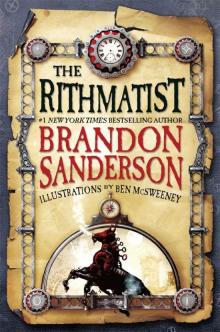 The Rithmatist
The Rithmatist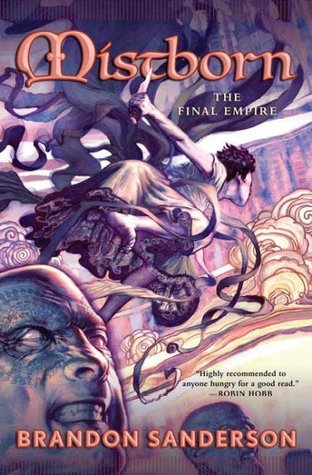 Mistborn: The Final Empire
Mistborn: The Final Empire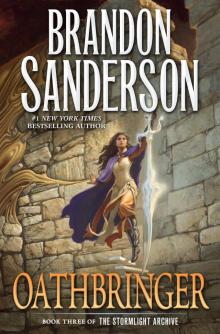 Oathbringer
Oathbringer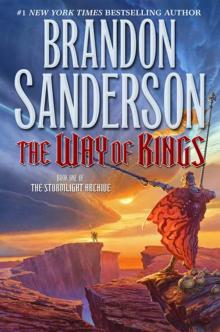 The Way of Kings
The Way of Kings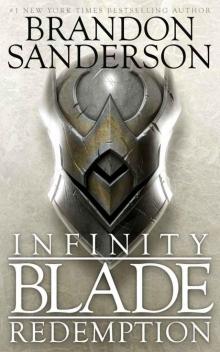 Redemption
Redemption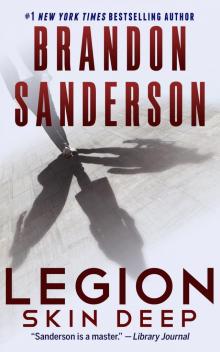 Skin Deep
Skin Deep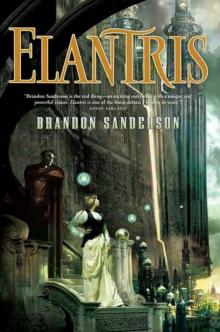 Elantris
Elantris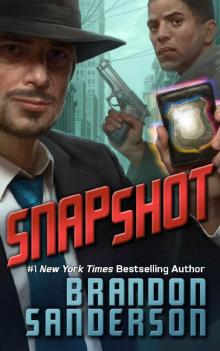 Snapshot
Snapshot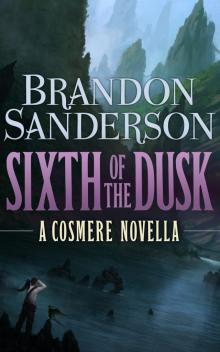 Sixth of the Dusk (Cosmere)
Sixth of the Dusk (Cosmere)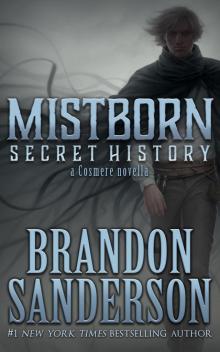 Mistborn: Secret History
Mistborn: Secret History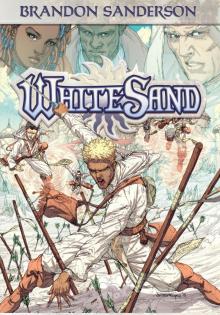 White Sand, Volume 1
White Sand, Volume 1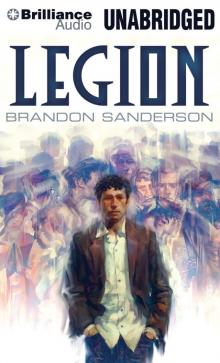 Legion
Legion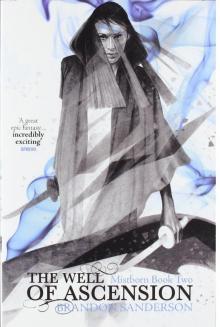 The Well of Ascension
The Well of Ascension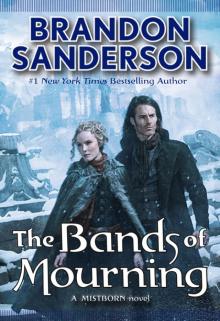 The Bands of Mourning
The Bands of Mourning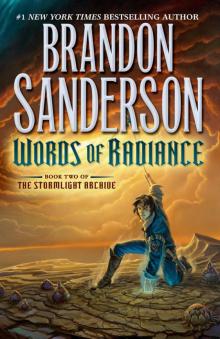 Words of Radiance
Words of Radiance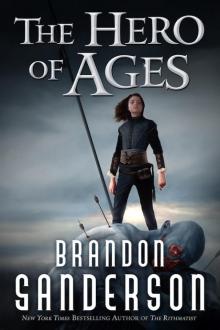 The Hero of Ages
The Hero of Ages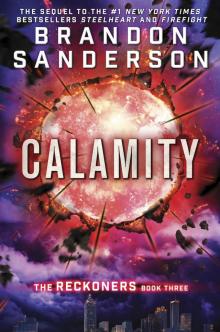 Calamity
Calamity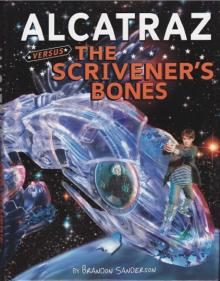 Alcatraz Versus the Scrivener's Bones
Alcatraz Versus the Scrivener's Bones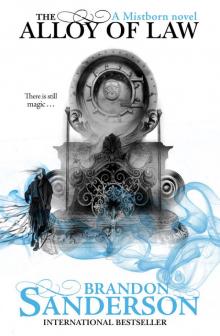 The Alloy of Law
The Alloy of Law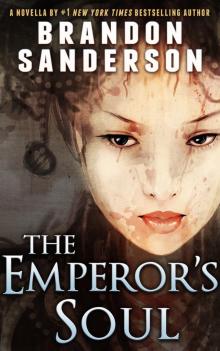 The Emperors Soul
The Emperors Soul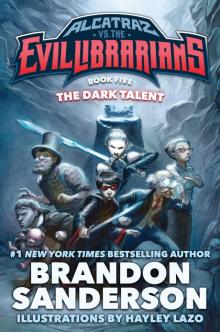 The Dark Talent
The Dark Talent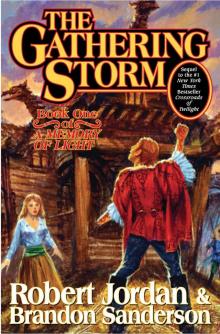 The Gathering Storm
The Gathering Storm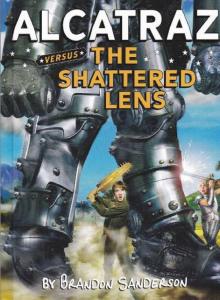 Alcatraz Versus the Shattered Lens
Alcatraz Versus the Shattered Lens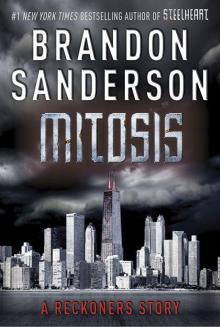 Mitosis
Mitosis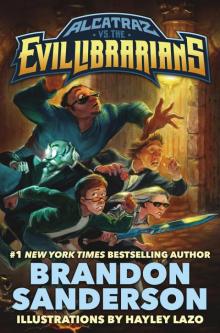 Alcatraz vs. The Evil Librarians
Alcatraz vs. The Evil Librarians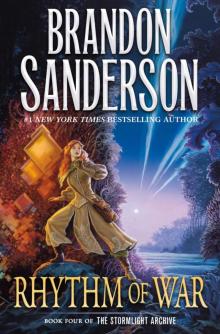 Rhythm of War (9781429952040)
Rhythm of War (9781429952040)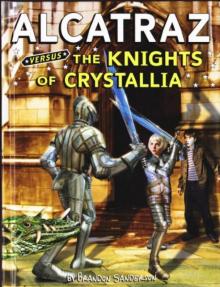 Alcatraz Versus the Knights of Crystallia
Alcatraz Versus the Knights of Crystallia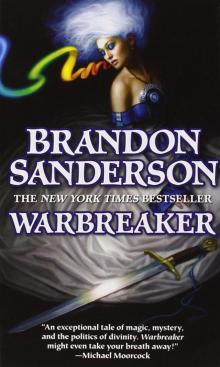 Warbreaker
Warbreaker Firstborn
Firstborn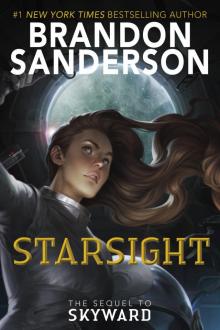 Starsight
Starsight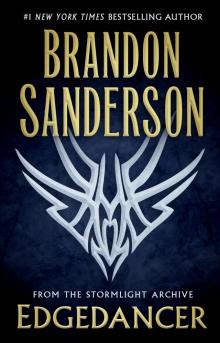 Edgedancer
Edgedancer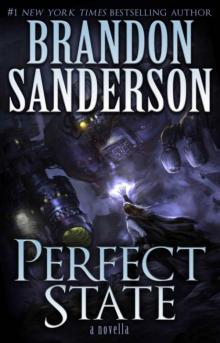 Perfect State
Perfect State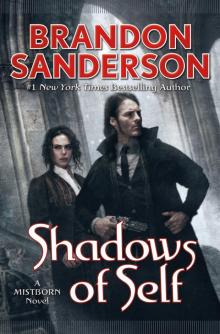 Shadows of Self
Shadows of Self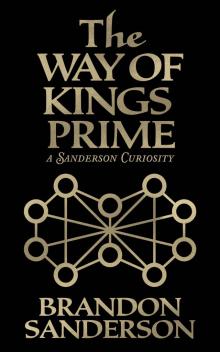 The Way of Kings Prime
The Way of Kings Prime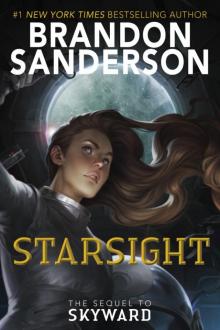 Starsight (US)
Starsight (US)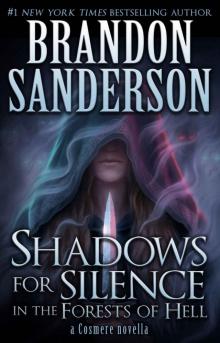 Shadows for Silence in the Forests of Hell
Shadows for Silence in the Forests of Hell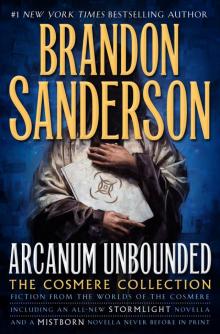 Arcanum Unbounded: The Cosmere Collection
Arcanum Unbounded: The Cosmere Collection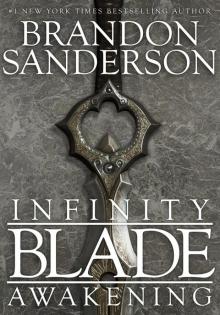 Awakening
Awakening Firefight
Firefight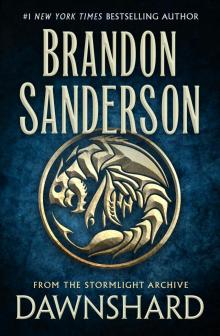 Dawnshard
Dawnshard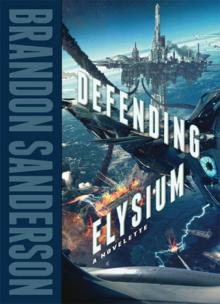 Defending Elysium
Defending Elysium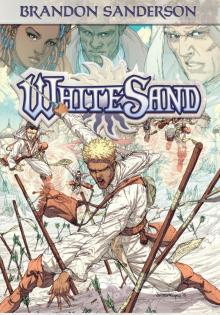 White Sand
White Sand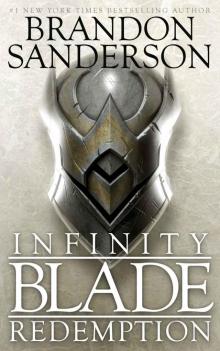 Infinity Blade: Redemption
Infinity Blade: Redemption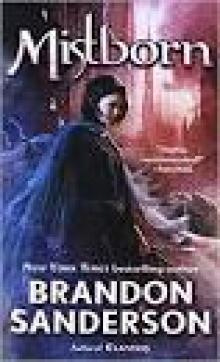 The Final Empire
The Final Empire Skyward
Skyward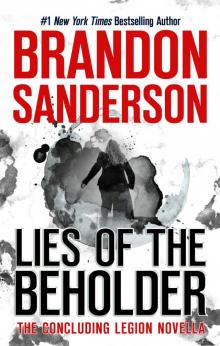 Lies of the Beholder
Lies of the Beholder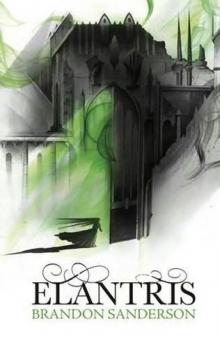 Elantris e-1
Elantris e-1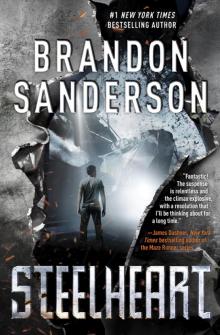 Steelheart r-1
Steelheart r-1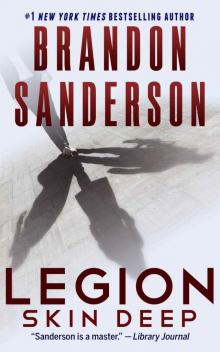 Legion: Skin Deep
Legion: Skin Deep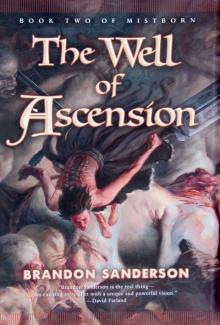 Well of Ascension
Well of Ascension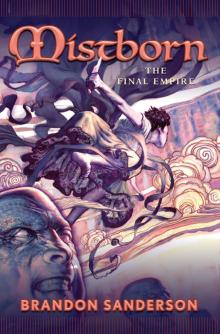 Mistborn
Mistborn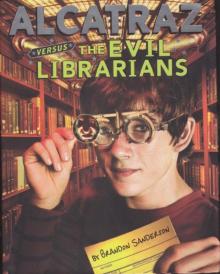 Alcatraz versus the Evil Librarians
Alcatraz versus the Evil Librarians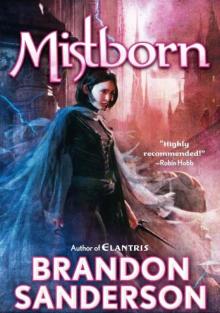 The Final Empire m-1
The Final Empire m-1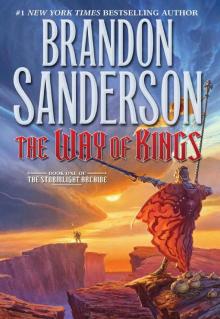 The Way of Kings (Stormlight Archive, The)
The Way of Kings (Stormlight Archive, The)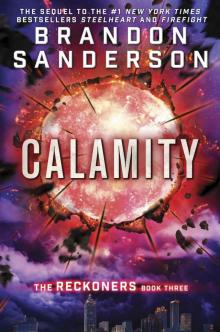 Calamity (The Reckoners)
Calamity (The Reckoners)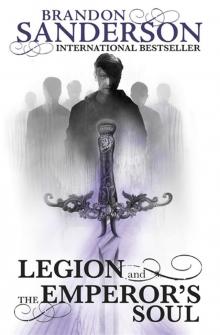 Legion and the Emperor's Soul
Legion and the Emperor's Soul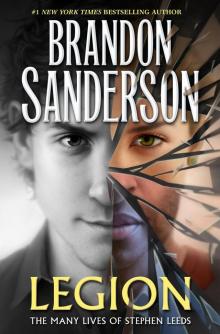 Legion: The Many Lives of Stephen Leeds
Legion: The Many Lives of Stephen Leeds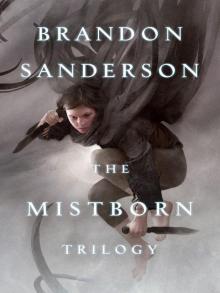 The Mistborn Trilogy
The Mistborn Trilogy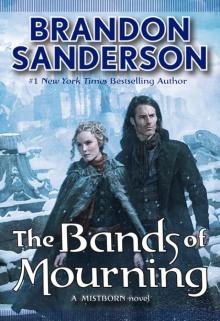 Bands of Mourning
Bands of Mourning Alcatraz
Alcatraz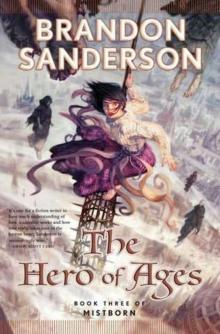 The Hero of Ages m-3
The Hero of Ages m-3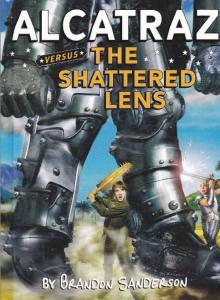 Alcatraz vs. the Shattered Lens
Alcatraz vs. the Shattered Lens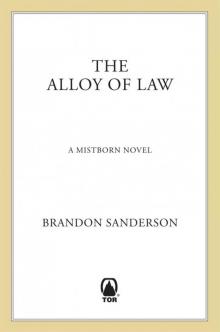 The Alloy of Law: A Mistborn Novel
The Alloy of Law: A Mistborn Novel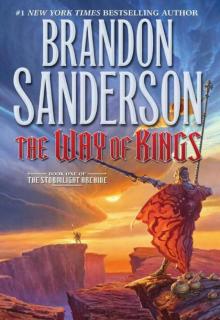 The Way of Kings sa-1
The Way of Kings sa-1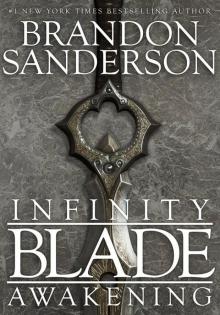 Infinity Blade: Awakening
Infinity Blade: Awakening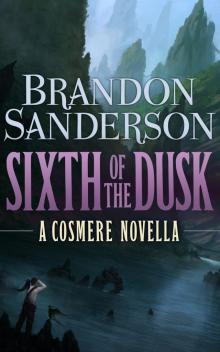 Sixth of the Dusk
Sixth of the Dusk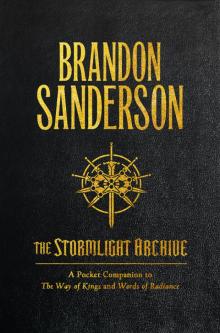 The Stormlight Archive
The Stormlight Archive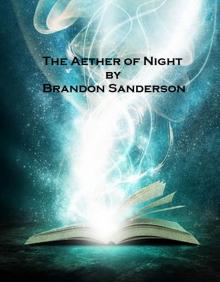 The Aether of Night
The Aether of Night